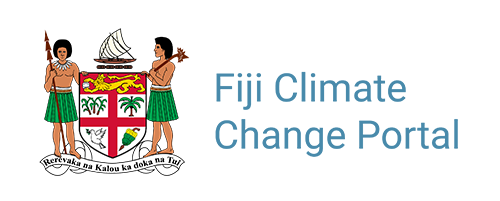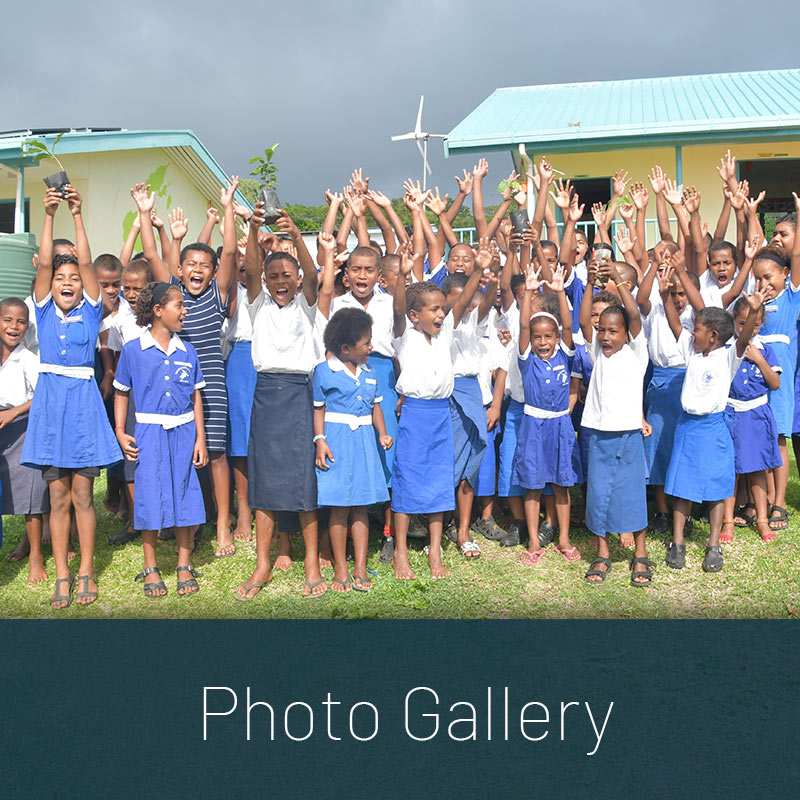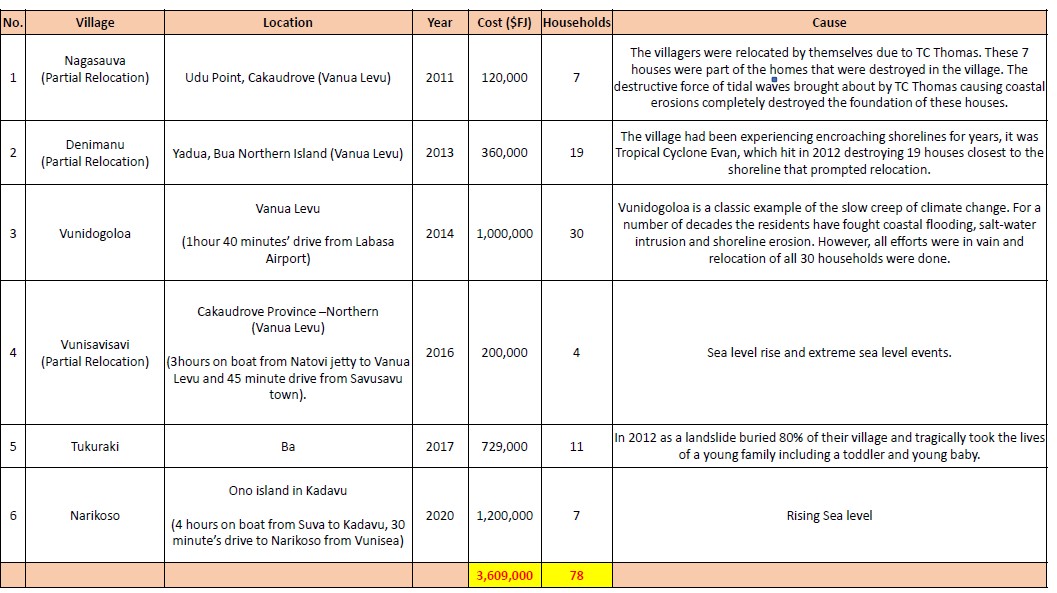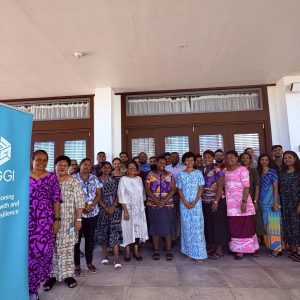Green Climate Fund Financing
Projects
Legislation
Sector Working Group Members
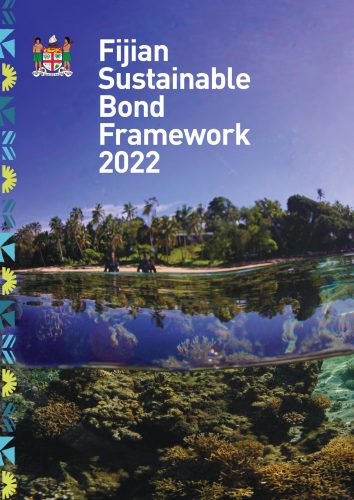
Fijian Sustainable Development Bond Framework 2022
This new Framework is the first of its kind developed by a Small Island Developing State.
The Fiji Government has developed the Fijian Sustainable Bond Framework to enable the issuance of thematic bonds related to Fiji’s sustainable development ambitions. This Framework builds on the experience and Green Bond Framework of the Fiji Sovereign Green Bond issuance in 2017, with the intention of issuing other thematic bonds, starting with a Blue Bond in 2022.
The Framework creates a robust taxonomy for green, blue, and social projects. It is expected to help Fiji better communicate its sustainable development finance priorities with bilateral, multilateral, private and philanthropic investors.
Download Link: Fijian Sustainable Bond Framework
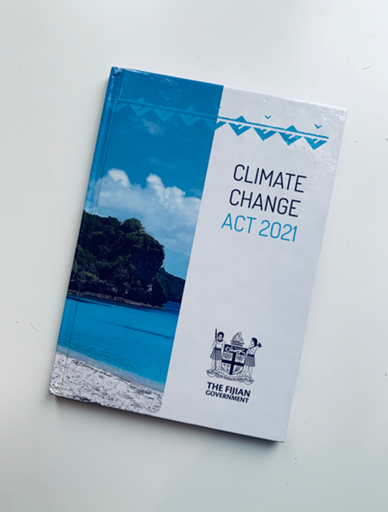
Climate Change Act 2021
On 24 September 2021, Fiji achieved a milestone by gazetting the Climate Change Act 2021.
The Act creates a legal basis to support our sustainable development objectives, long-term climate ambition, net-zero emissions target, and commitment to protecting Fiji’s environment.
The Climate Change Act 2021 consists of 112 clauses and sections. It is divided into 17 parts reflecting both Fiji’s current National Climate Change Policy and the Paris Agreement. More importantly, the Act declares a climate emergency (under part 2) by recognising the urgent need for rapid and ambitious global action.
Download Climate Change Act 2021
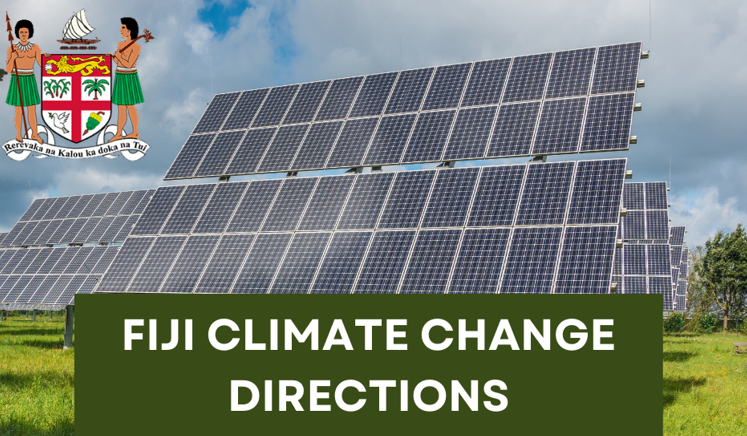
Changes to long term climate patterns have increased the intensity and frequency of weather-related events. Fiji is highly exposed. The impacts of climate change are being felt by the citizens of Fiji. Without action at all levels, there will be increasing social, economic, and environmental costs.
Prime Minister Rabuka and the Coalition Government of Fiji is committed to fight climate change. Fiji will continue to lead at the regional and international level on climate change action, promote an ocean of peace and sustainability for the blue continent.
The Coalition Government will deliver measures that will cut more emissions, deploy clean energy and new technologies, implement adaptation projects to protect Fijians, and build resilient and prosperous communities.
Download: FIJI CLIMATE CHANGE DIRECTIONS
Quick Facts
The Climate Change Division of the Ministry of Environment and Climate Change as the National Designated Authority (NDA) Secretariat is the fundamental intermediary and point of communication between stakeholders in Fiji and the Green Climate Fund (GCF). It provides broad strategic oversight of the GCF activities in Fiji and communicates Fiji’s priorities for financing low-emission and climate resilient development. Fiji has currently 5 GCF projects.
More information about the NDA can be accessed here:
The Fijian Government has released key policy documents that help formulate climate change action.
The policies can be accessed here:
Climate Change Act 2021
National Climate Change Policy 2018 – 2030
National Adaptation Plan (NAP)
Displacement Guidelines
Planned Relocation Guidelines
Low Emission Development Strategy 2018 – 2050 (LEDS)
NDC Implementation Roadmap 2017 – 2030
National Ocean Policy 2020 – 2030
The Fijian Government has successfully relocated 6 climate vulnerable communities to safer grounds since 2011 to address climate induced displacement. We are also one of the first countries in the world to have a policy to address climate induced displacement and human mobility.
Download the Planned Relocation Guidelines and Displacement Guidelines.
News & Blog
Subscribe to the Fijian Climate Change Bulletin
By subscribing to the Fijian Climate Change Bulletin you are also joining the Open Sector Working Group (SWG)
Download the Open Sector Working Group Terms of Reference
You can scan the QR code below for signing up to the Fijian Climate Change Bulletin – or fill the fields to the right.

Climate Change Division – GIS Platform
The Government of Fiji has set ambitious plans to support its most climate-impacted communities. Geospatial applications, as decision-support tools, are helping selected and prioritised pipeline projects, with the evidence-based rationale needed to pursue innovative financing solutions.
The Climate Change Division has launched this GIS platform that provides a collection of decision support tools, including maps, apps, and data layers supporting Fiji’s climate change streams.
This includes CCD applications presenting Fiji’s critical work on Planned Relocation and Displacement of Climate-Impacted Communities, adaptation initiatives including ongoing efforts on Nature-based Seawalls with the Ministry of Waterways, E-bus, Fiji Rural Electrification Fund, and other web applications supporting climate resilience.
This initiative is part of a long-term, dedicated, and nationally embedded support from the UNOSAT Division of the United Nations Institute for Training and Research (UNITAR) within the Climate Change Division. The platform maps projects and activities in collaboration with implementing ministries, through the support of the Norwegian Agency for Development Cooperation (NORAD) programme on “Strengthening Capacities in the use of geospatial information for improved resilience in the Asia-Pacific and Africa”.
